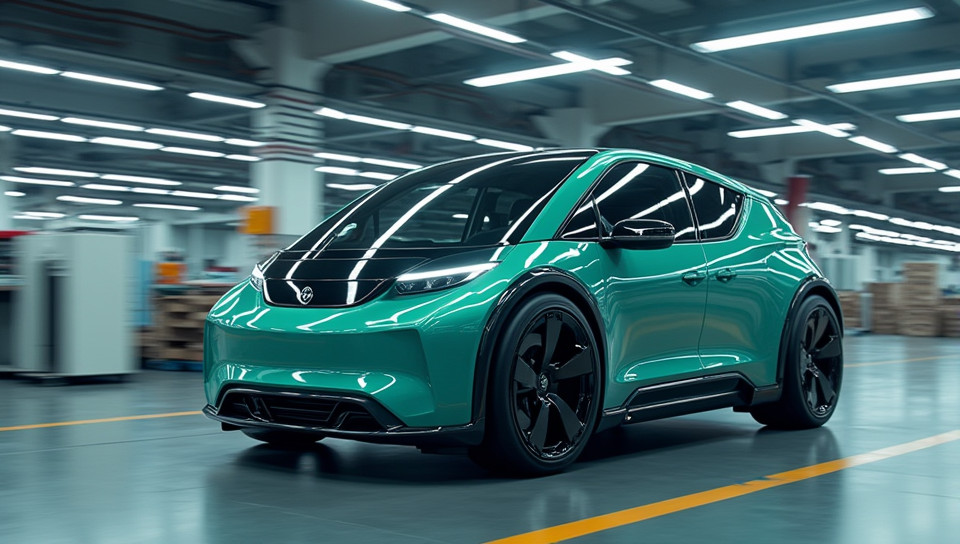Electric vehicles' manufacturing waste management needs improvement 91%

Electric Vehicles' Manufacturing Waste Management: A Growing Concern
As the world shifts towards sustainable transportation, electric vehicles (EVs) have become increasingly popular. However, behind the scenes of this eco-friendly revolution lies a concerning issue: waste management in EV manufacturing. The production process of these environmentally conscious cars generates a significant amount of waste, posing challenges to the industry and the environment.
The Scale of the Problem
The growth of the EV market has led to an increase in demand for raw materials such as lithium, cobalt, and nickel. These materials are often extracted using processes that result in substantial amounts of hazardous waste. A study by the International Energy Agency (IEA) found that the production of EVs generates around 10 times more waste than traditional gasoline-powered vehicles.
Types of Waste Generated
Electric vehicle manufacturing produces a variety of hazardous waste, including: - Chemical waste from battery production - Hazardous materials like lead and cadmium - Electronic waste from discarded components
The Impact on the Environment
The improper disposal of EV manufacturing waste can have severe environmental consequences. Toxic chemicals can contaminate soil and water, posing risks to both human health and wildlife. Furthermore, the extraction of raw materials often involves deforestation and habitat destruction.
Industry Response and Improvement Needed
While some manufacturers are taking steps to address the issue, more needs to be done. The industry must adopt sustainable practices throughout the entire production process, from sourcing to disposal. This includes implementing recycling programs for end-of-life vehicles and exploring alternative materials that reduce waste generation.
Conclusion
The electric vehicle revolution brings with it significant environmental benefits, but it also poses new challenges in terms of waste management. As the demand for EVs continues to grow, it is essential that manufacturers prioritize sustainable practices and responsible waste disposal. By working together, we can minimize the negative impact on the environment and ensure a greener future for generations to come.
- Created by: Sōma Nishimura
- Created at: Aug. 15, 2024, 12:44 a.m.
- ID: 7235




